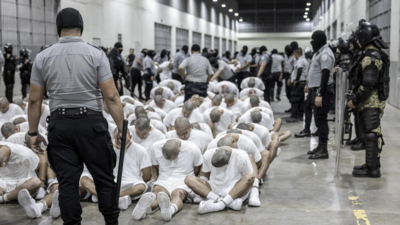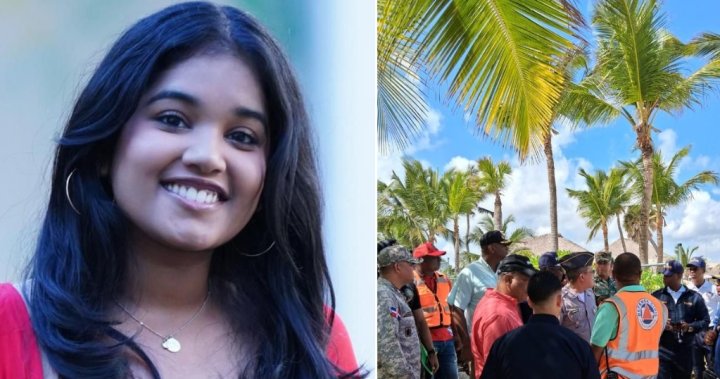
Representative image (Picture credit: AP)
Families of
Venezuelan migrants
deported from the US claim their loved ones have been wrongly sent to El Salvador’s notorious
Terrorism Confinement Centre
, despite having no links to the feared Tren de Aragua (TdA) gang.
The controversial deportations carried out under US President Trump’s administration, have left many Venezuelans in the US terrified of facing similar treatment.
As per BBC,
Myrelis Casique López
had been waiting for her son, Francisco José García Casique, to arrive back in Venezuela. But instead of seeing him return home, she was shocked to recognise him in televised footage from El Salvador, where 238 Venezuelans had been flown to a high-security prison.
The images showed men with shaved heads and shackled limbs being led by heavily armed security forces.
“It’s him. It’s him,” she said, identifying her son in a prison photo where he sat with his head bowed, a tattoo visible on his arm. “He doesn’t belong to any criminal gang, either in the US or in Venezuela… he’s not a criminal,” she insisted. “What he’s been is a barber.”
She believes his tattoos, roses and names of family members, led to his wrongful detention.
Many other families also fear their relatives were misidentified due to body art.
Trump's crackdown
Trump justified the mass deportation under the Alien Enemies Act of 1798, arguing that the US was facing an “invasion” by a criminal organisation linked to kidnappings, contract killings, and extortion. He claimed that TdA members had ties to Venezuelan President Nicolás Maduro’s regime and were conducting “irregular warfare” against the US.
Under his order, all Venezuelan citizens aged 14 or older—who were suspected gang members but were not lawful US residents—became “liable to be apprehended, restrained, secured, and removed as Alien Enemies.”
The move was legally challenged. Judge Hames Boasberg attempted to block the deportation when the plane carrying the migrants was already in international airspace. However, since his ruling was not included in a written order, the Trump administration proceeded with the deportation.
Once the deportees arrived at the Salvadoran prison, Trump took to Truth Social, blaming Democrats for allowing them into the US in the first place. “These are monsters sent into our country by Crooked Joe Biden and the Radical Left Democrats. How dare they!” he posted. He also praised El Salvador’s President Nayib Bukele for his cooperation, saying, “We will not forget.”
Senator Marco Rubio echoed Trump’s stance, stating that “hundreds of violent criminals were sent out of our country” and thanking Bukele for facilitating the transfers.
Horrific conditions in El Salvador's mega-jail
According to Daily Mail, of the 238 deportees, 137 were suspected TdA members, while the rest included 101 Venezuelans removed under Title 8 and 23 Salvadoran MS-13 members, including two high-profile gang leaders.
US deports hundreds of Venezuelans to supermax prison despite court order | BBC News
The detainees now face brutal conditions inside the Terrorism Confinement Centre (Cecot). Reports indicate horrific overcrowding, disease, and a systematic denial of food, clothing, medicine, and hygiene.
Inmates are crammed into cells of 70 people, locked away for all but 30 minutes a day, and forbidden from stepping outside or having visitors. They sleep on steel cots without mattresses, watched round the clock by 800 heavily armed guards and CCTV cameras. Meanwhile, the few facilities within the prison—like dining halls, break rooms, and a gym—are exclusively for the guards.
For families like Ms Casique’s, the conditions are unbearable to imagine. “I wish it wasn’t him… he didn’t deserve to be transferred there,” she said tearfully.
The BBC also spoke with the mother of
Mervin Yamarte
, another deportee, who collapsed in grief upon recognising her son in the footage. “I threw myself on the floor, saying that God couldn’t do this to my son,” she said. Like Francisco García, Yamarte had no known gang ties. He had worked long shifts in a tortilla factory and played football on Sundays.

 1 week ago
10
1 week ago
10









 English (US) ·
English (US) ·